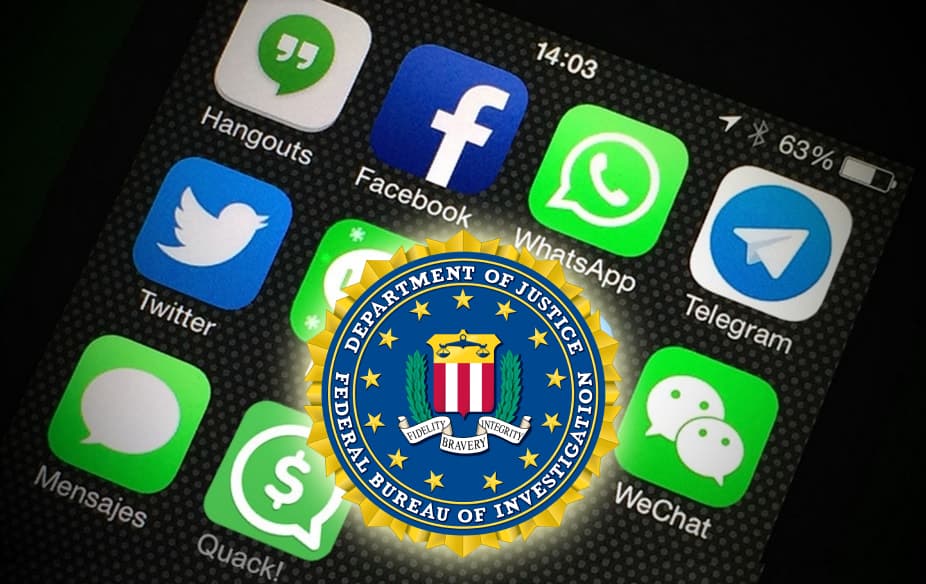Por muito que os serviços de mensagens se esforcem por assegurar aos utilizadores que mantêm as suas mensagens e dados em segurança e que protegem a sua privacidade usando encriptação, o que não gostam de referir é que - como qualquer outro serviço ou empresa - são obrigados a cumprir com as leis dos países onde operam. Isso inclui ceder dados às autoridades se assim for ordenado por um tribunal, e no caso dos EUA, é o próprio FBI que revelou uma tabela que mostra que serviços de mensagens disponibilizam que dados.
A maioria dos serviços não disponibiliza as mensagens em si, mas há casos em que isso pode acontecer de forma indirecta, como no iMessage da Apple caso o utilizador tenha optado por fazer backups no iCloud.
O Signal, como esperado, é um dos que pouco ou nada fornece por nada ter para fornecer. Mesmo quando ordenado por um Tribunal, tudo o que pode fornecer é a data em que um utilizador se registou no serviço, e a data em que acedeu pela última vez.
| App | Legal process & additional details |
|---|---|
| Apple iMessage | *Message content limited. *Subpoena: can render basic subscriber information. *18 USC §2703(d): can render 25 days of iMessage lookups and from a target number. *Pen Register: no capability. *Search Warrant: can render backups of a target device; if target uses iCloud backup, the encryption keys should also be provided with content return can also acquire iMessages from iCloud returns if target has enabled Messages in iCloud. |
| Line | *Message content limited. *Suspect’s and/or victim’s registered information (profile image, display name, email address, phone number, LINE ID, date of registration, etc.) *Information on usage. *Maximum of seven days worth of specified users’ text chats (Only when E2EE has not been elected and applied and only when receiving an effective warrant; however, video, picture, files, location, phone call audio and other such data will not be disclosed). |
| Signal | *No message content. *Date and time a user registered. *Last date of a user’s connectivity to the service. |
| Telegram | *No message content. *No contact information provided for law enforcement to pursue a court order. As per Telegram’s privacy statement, for confirmed terrorist investigations, Telegram may disclose IP and phone number to relevant authorities. |
| Threema | *No message content. *Hash of phone number and email address, if provided by user. *Push Token, if push service is used. *Public Key *Date (no time) of Threema ID creation. Date (no time) of last login. |
| Viber | *No message content. *Provides account (i.e. phone number)) registration data and IP address at time of creation. *Message history: time, date, source number, and destination number. |
| *No message content. *Accepts account preservation letters and subpoenas, but cannot provide records for accounts created in China. *For non-China accounts, they can provide basic information (name, phone number, email, IP address), which is retained for as long as the account is active. | |
| *Message content limited. *Subpoena: can render basic subscriber records. *Court order: Subpoena return as well as information like blocked users. *Search warrant: Provides address book contacts and WhatsApp users who have the target in their address book contacts. *Pen register: Sent every 15 minutes, provides source and destination for each message. *If target is using an iPhone and iCloud backups enabled, iCloud returns may contain WhatsApp data, to include message content. | |
| Wickr | *No message content. *Date and time account created. *Type of device(s) app installed on. *Date of last use. *Number of messages. *Number of external IDs (email addresses and phone numbers) connected to the account, bot not to plaintext external IDs themselves. *Avatar image. *Limited records of recent changes to account setting such as adding or suspending a device (does not include message content or routing and delivery information). *Wickr version number. |





























Sem comentários:
Enviar um comentário (problemas a comentar?)